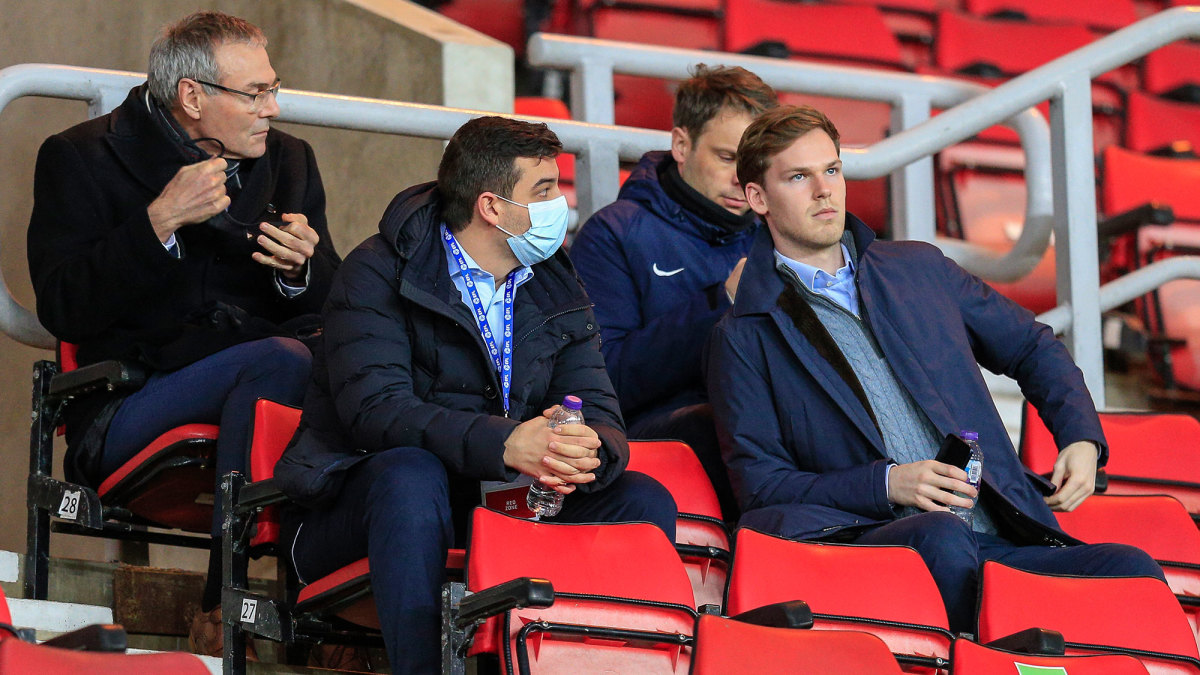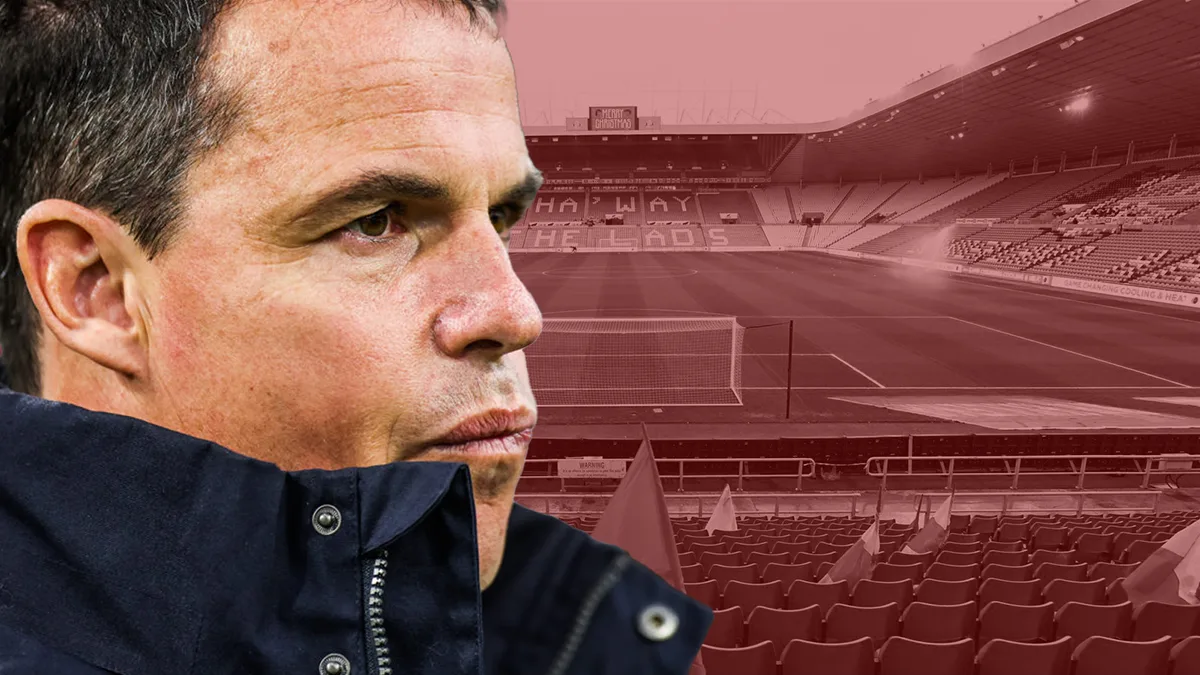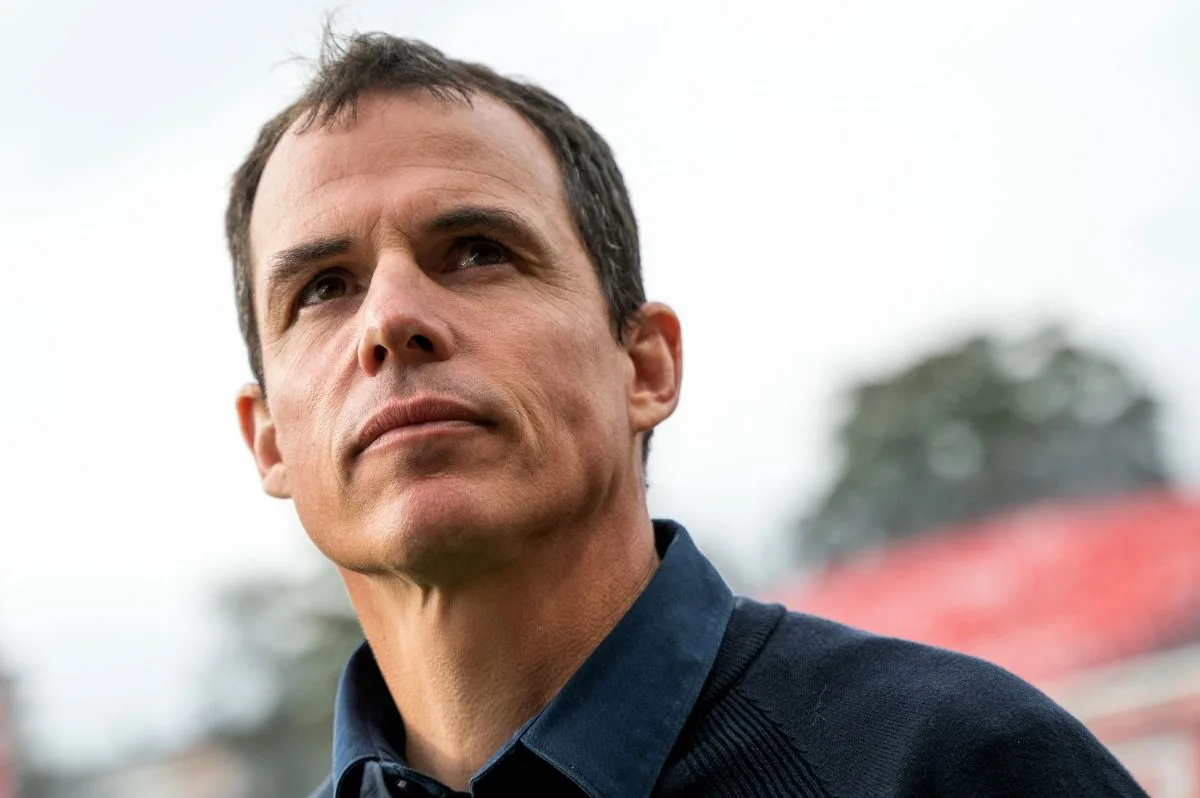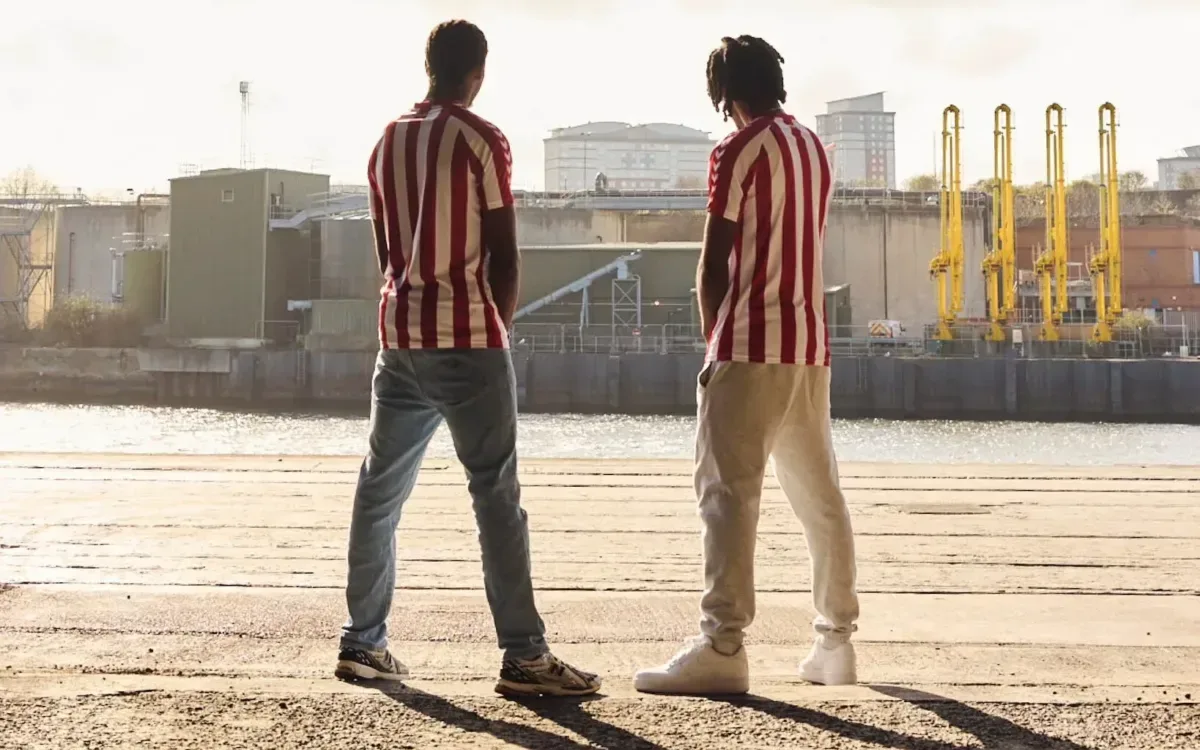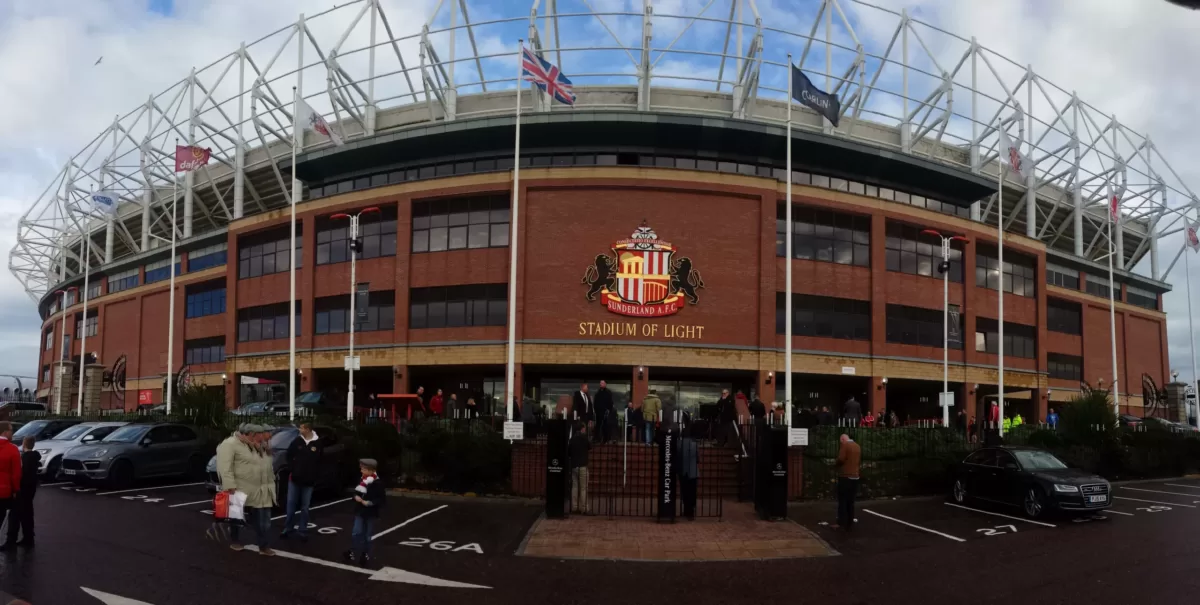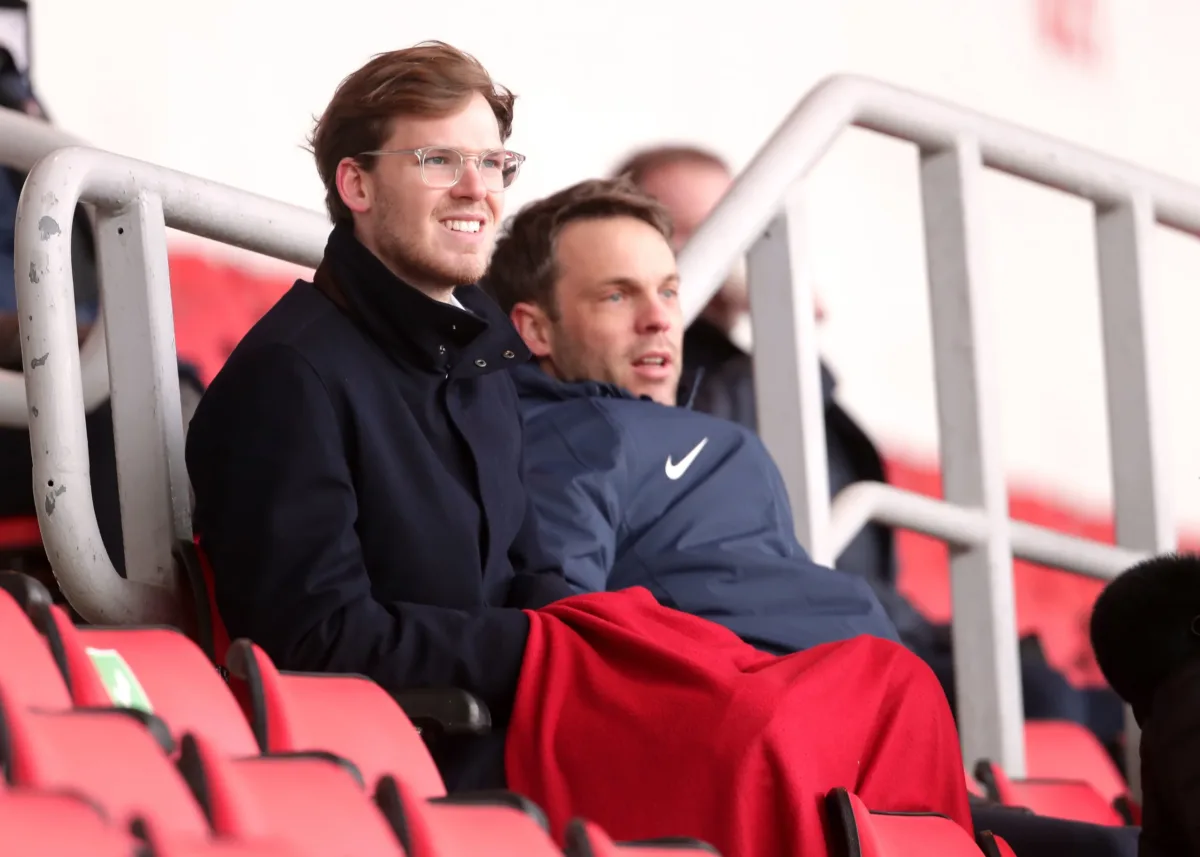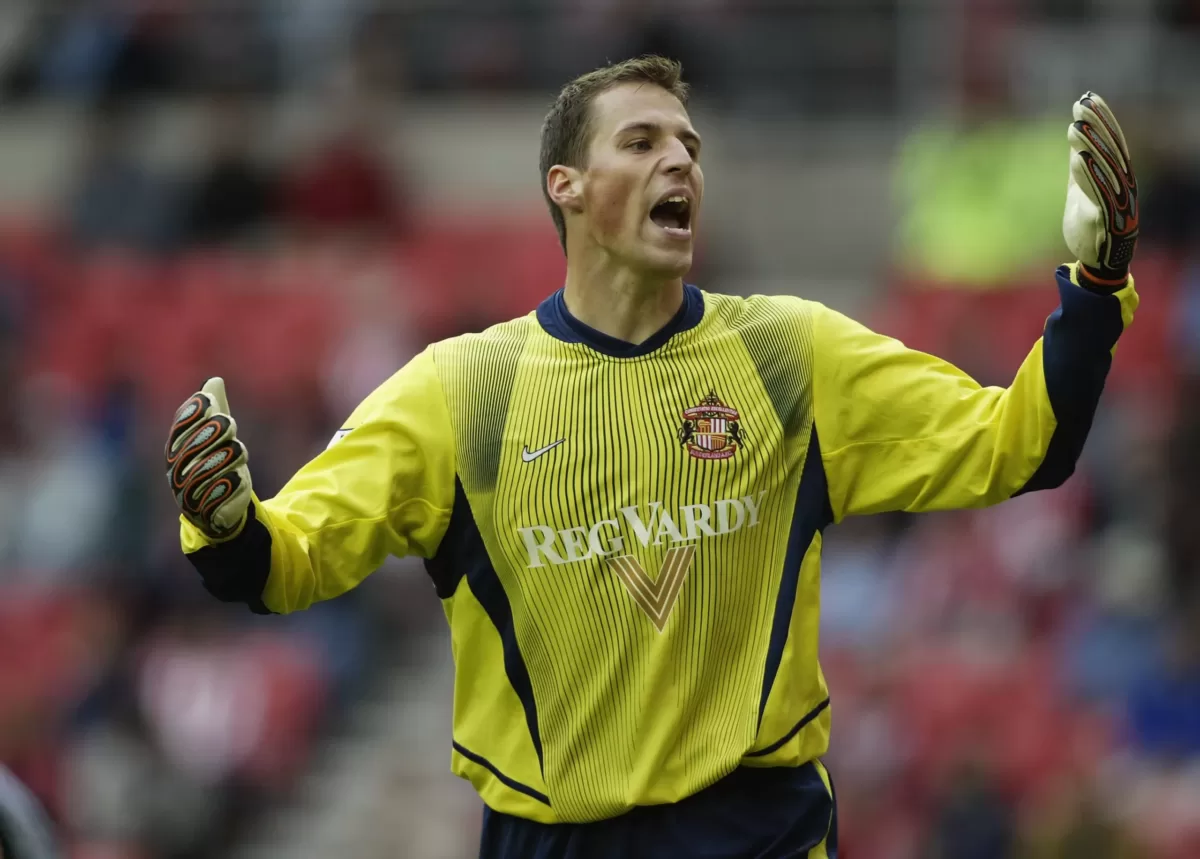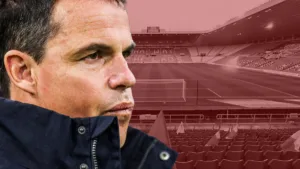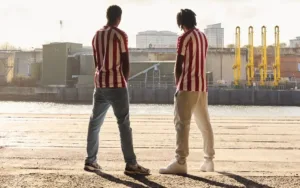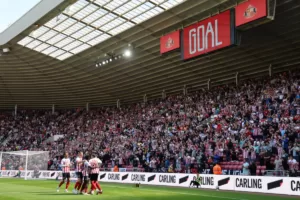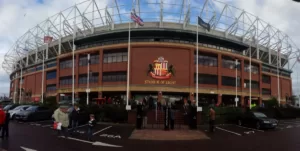Five months ago, I penned a piece that was, at least by my standards when it comes to Sunderland AFC, wildly positive and optimistic. Six weeks and 10 unbeaten league outings (not to mention a minor but still noteworthy Wembley win) into a new regime, things were looking up and so, if form continued, were we.
Alas, it didn’t. What followed was a collapse England’s Test team might be proud of, as Lee Johnson’s men first sputtered and, eventually, despite a resurgent first 45 minutes in the second leg of the play-off semi-final, ran out of steam. Another season in League One loomed, the manager’s future was – already – in doubt, and the vast majority of us sighed and wondered when this third tier odyssey might finally reach its end.
That wondering has not disappeared yet, nor will it for at least a good eight months. Yet as we sit here on the other side of the opening five games of our fourth season down here and the first transfer window proper under a new majority owner, there is plenty that we do now know.
For one, Sunderland have started the season more promisingly than many would have dared bet even a month ago. This is not our best start to a season since relegation, that honour going to Jack Ross’ side in our first season back at this level, but it still left us top of the tree as we headed into this weekend’s international break. In doing so we’ve also ended an unpleasant run of never having topped the table at the end of a gameweek since our demotion.
That this relatively roaring start has come amid a tricky fixture list and a squad that was far from fully formed on the opening day is testament to both the manager and his charges. Plenty wanted Johnson gone at the end of last season, but it was reassuring to hear Kyril Louis-Dreyfus stick to his guns and previous statements when, four days after that play-off defeat, he confirmed the manager was a “long-term appointment from the start” and that he would continue to “be with us next season”.
Whether it was fully welcomed or not at the time, it was the right move. This is a club whose solution to its ills has for too long been to dump the manager (or, in Johnson’s case, the head coach) rather than scratch below the surface for deeper issues that we all knew were there but few have bothered or dared to confront. What is more, to bin Johnson mere months into what had previously been vaunted as a long-term plan would have presented valid questions about Louis-Dreyfus and Kristjaan Speakman’s judgement.
The mood around SR5 could not be more different than that which clouded last season’s end. No fewer than 10 first-team players have departed for good. If we count Will Grigg, whose season-long loan at Rotherham United will take him to end of his excessively remunerated Sunderland contract, that rises to a full team’s worth of exits; a mass migration of plodders and failures that was long overdue.
In their stead have arrived nine newbies, alongside a clear shift in focus and culture. Of the nine, only two are aged over 23, Corry Evans and Alex Pritchard being very much outliers in a summer of youth. Two, in the form of Callum Doyle and Dennis Cirkin, are still in their teens, yet both are likely to be a part of Johnson’s first-choice XI as the season progresses. Contrast that with last year’s pursuit and regrettable capture of a 35-year-old Danny Graham and it’s hard not to feel a little enthused.
Whether or not this shift bears fruit will take a while to say for certain but, in the meantime, we are at least getting something that is enjoyable to watch. Some of the football played in the opening weeks of this season has been a joy to witness, not least those scintillating second and third goals in last weekend’s beating of Wycombe Wanderers.
Johnson has, as was promised upon his arrival, injected energy into the side and formulated a game plan that focuses on us scoring more than it does on not conceding, another welcome change from before.
Perhaps the most pleasing aspect of our start has been the integral role the club’s own academy products have played. Lynden Gooch has been a mainstay for years, and while his form continues to fluctuate his opening day performance against Wigan Athletic was representative of him at his best, a bona fide matchwinner in this division.
Elliot Embleton looks every part the player Blackpool were keen to retain after last year’s successful loan spell, his goal in that Wycombe game capping an excellent few weeks. Meanwhile the story of the season so far has been the emergence of Dan Neil. Shoehorned at left-back on the opening day, Neil has quickly shown he is in fact one of the best midfielders we have on the books, displaying a quickness of thought and passing ability that makes you wonder why on earth he wasn’t given a chance a year ago.
The only downside of the club’s own youngsters playing such an important role now is that it makes you wonder what might have been. Had Neil, Embleton and co. been given sustained opportunities before, had the club trusted in its academy a couple of years ago, we might well be out of this division by now. Imagine Joe Hugill had been given a route to the first team instead of us signing Graham?
Neil, it shouldn’t be forgotten, was coveted by Premier League clubs too, but chose to stay. The departure of these starlets is not and was never the inevitability some would have you believe.
Of course, plenty of them did depart, and the continued presence of those who oversaw their sales has been an underlying theme across the summer. Louis-Dreyfus might well be the club’s majority owner now, but the retention of the Madrox trio was never likely to sit comfortably with most and, when business was slow, concerns around their continued influence weren’t far from the surface.
Those concerns have diminished somewhat but it is fair to say that the suggestion in some quarters – that people believed Louis-Dreyfus to be merely a frontman for the ongoing reign of Madrox – was disingenuous at best. Few (prominent) voices claimed the new man was a shill for the old guard; the concern was rather that their ongoing presence, and insufficiently deep pockets or nous, would act as a restraining factor on Louis-Dreyfus and the club’s ambitions.
For all the club may now be commended on a successful transfer window, there was a point when concerns about how the summer would go weren’t only present within an understandably nervous fan base.
Just 17 days before the season began, Johnson told reporters he was having “sleepless nights” and wanted six more signings (which is, refreshingly, what he did end up getting). Moreover, sources close to the club’s transfer dealings were openly discussing the challenging budget that had been set for the revamp, one said to be the product of “bad historical decisions” at the club prior to Louis-Dreyfus’ arrival. That said budget was not even finalised until the end of June was a troubling detail missed by many, too.
Take a look at the club’s incomings and there is little evidence of much money being spent. Five of the nine are loanees, Evans and Pritchard came out of free agency, while the deals for Cirkin and Leeds United’s Niall Huggins were accompanied by suggestions of various clauses being present.
Cirkin joined for an undisclosed fee, but it’s believed a buy-back clause exists should Spurs wish to re-sign him. Huggins, meanwhile, arrived for nothing, Leeds instead being due a proportion of any fee we may eventually sell him for.
That is not necessarily an issue. At this level, transfers involving fees are a rarity; between 2009 and 2019, of the 2,551 signings collectively made by League One clubs, a mere 177 were confirmed as involving a fee. If we have acquired a promotion-winning side for minimal outlay it will be not just commendable but incredibly encouraging, especially when compared to the waste of previous years and regimes.
Yet that minimal spend reflects a nagging trend that has become apparent across the club in certain areas. The ticket office is now open, but only two days a week, with an extra few hours on home matchdays, and the operation has all the hallmarks of having been markedly slimmed down. The club shop, bewilderingly, remains closed. Stocks for the online store have already proven insufficient for demand.
And while some scoffed at complaints about the unprofessional manner in which season cards were sent out (and ignore the fact the ticketing situation remains haphazard at best), it’s only fair to say that it didn’t exactly reflect well on a business trying to distance itself from its recent nadir.
Perplexingly, limited spending hasn’t been ubiquitous. Talk to anyone who has spent time at the Academy of Light recently and they’ll tell you of a building that has had a facelift from top to bottom, with seemingly no room untouched. Expenditure on the Stadium of Light pitch has been well documented, and it looks a world away from the disgraceful state it was allowed to fall into last winter. The recruitment team has, evidently, been revamped and bulked up.
And one of the reasons those shoddy season ticket envelopes were noteworthy were because they clashed oddly with the expenditure incurred when Louis-Dreyfus arrived in February and sent out letters to fans that were, if funds really are tight, of lesser importance than season cards.
It seems profoundly odd that sizeable expenditure has been made in certain areas while extreme cost-cutting remains in place elsewhere. Yet it is not a stretch to wonder whether the commitment to invest in infrastructure predated the return of Juan Sartori, and the arrival of Madrox lawyer Simon Vumbaca, to the club’s board.
One of the more disappointing aspects that can be levelled at the new regime is the complete lack of transparency around who actually owns our football club. Shareholdings have been rumoured – Louis-Dreyfus is believed to own 59% – but never confirmed. Companies House documents have been filled out incorrectly, either by design or mismanagement, and we know nothing of the background or membership of the ‘Mercator holding company’ that was referred to in a meeting with supporter groups back in May.
Murmurings from credible sources in early summer suggested problems could arise if certain shareholders were unwilling or unable to meet their proportion of any investment required. Madrox were close to bust when Louis-Dreyfus arrived, so their ability to match his ambition seems highly unlikely, and while there’s no clear public evidence that they’ve acted as a drag on proceedings to date, it’s fairly obvious that some remain determined to be seen as having their say or having the scoop on the intricate workings at the club. Dave Jones’ tweet this week, decrying leaks about transfer dealings, was surely a swipe at those up high dispensing information rather than at anyone publishing it.
Far from much of this being a critique of the new owner or the club’s new recruitment team, the business they have done on clearly limited funds is indicative of a resourcefulness rarely seen before on Wearside.
Players have arrived from Manchester City, Bayern Munich, Spurs, Leeds and West Ham United, and while it is highly unlikely all nine new signings will prove to be perfect fits, it’s pretty clear Stuart Harvey, who came with a promising reputation, has worked tirelessly to try and meet the remit set for him.
We don’t yet know who will be a hit and who will be a miss, but it’s promising too that Ross Stewart and Carl Winchester, the only two permanent signings during this regime’s unofficial first transfer window, have been standout performers so far. Doyle looks a superb prospect, albeit as raw at times as you’d expect from a 17-year-old, and while we’ve not really seen enough of the rest to make a definitive judgement, the fact the club has embarked upon a strategy that prioritises pace and potential is worthy of praise.
Sitting top of this league should not be especially notable for a club like ours, but the fact now is the first time we’ve managed it since coming down is a neat reflection of quite how bad things have been. Whether we’re fully out of the woods yet remains to be seen but, at last, it feels like we have more to cheer than decry.
Baby steps? We’ll take them.
Chris Weatherspoon

